The Agenda 👇
Toni Cowan-Brown’s insights on overcoming cultural differences 🎧
What 32 editions of Capital Call reveal about venture capital in Europe
Why AI is overrated and companies might prefer to serve their users well
How to reflect on your startup’s expansion in the US, with Dominic Jacquesson
Why startups in the consumer goods industry are embracing vertical integration
🎧 The most recent Building Bridges podcast is out, featuring Toni Cowan-Brown, a San Francisco-based NationBuilder alumnus and content producer who works at the intersection of tech and politics. I admit I discovered Toni quite recently, listening to an episode of Another Podcast (a podcast she’s co-hosting with Benedict Evans) about “Is Europe a Market?”—a topic that’s very much in sync with this newsletter!
One example, among many, of what struck me in the Another Podcast episode: how difficult it was for Toni to market NationBuilder in Europe! In the US, it’s introduced as “software and community for leaders”. But when the company decided to expand in Europe, Toni was the one in charge of explaining that such a value proposition was impossible to convey in both Germany and France—in the latter because ‘leader’ is a word that simply doesn’t have a French equivalent, and in the former because, well, the official translation for ‘leader’ is... ‘Führer’ 😨
Then I said to my wife, Laetitia Vitaud “This person, Toni, should definitely be a guest on Building Bridges”, to which Laetitia replied: “I know, and by the way, we’re already in touch”. So it goes, and it’s a fascinating conversation which I urge you to listen to as it highlights so many topics I’m used to covering in European Straits: cross-cultural frictions, Europe as an integrated region, the relationship and (many) differences between the US and Europe, and where Silicon Valley is headed after a full year of pandemic.
As Laetitia wrote on the Building Bridges website,
Toni is a true European at heart (albeit with a British passport) who’s lived and worked in San Francisco for a few years. She’s one of those few people who loves to compare and confront cultures the way I do. Perhaps it’s why we just couldn’t stop talking!
She used to work for a startup called NationBuilder which develops software for political campaigns. (She was in charge of its European expansion). And she continues to see herself as being at “the intersection of tech and politics”.
At this intersection we had a long chat about how she experienced the pandemic in San Francisco, her view of the US healthcare system and how the Valley was impacted by everything that happened in California and the world in 2020.
And so be prepared to learn about many things: what it’s like doing business across the Atlantic in the tech sector; what it’s like to be a British citizen growing up in Brussels; why Toni feels more European than ever even though the UK has now officially left; why conversations between women are different and why that’s hard to process if algorithms are biased toward men; and what it’s been like to go back and forth between the US and Canada during a pandemic.
👉 Listen to Laetitia and Toni’s conversation using the player above or on Apple Podcasts or Spotify 🎧
🇪🇺 What I Learned Curating 32 Editions of “Capital Call”
As you know, the drive behind this newsletter is my conviction that “working in public” is both important and beneficial. It’s similar to what we at The Family tell entrepreneurs about putting their solution into the hands of actual users: it’s the only way to get the real feedback that lets you constantly iterate toward an ever-improving product.
Capital Call, a weekly newsletter that I curate with Willy Braun of Gaia Capital Partners and Vincent Touati-Tomas of Northzone, is meant to amplify what startup investors throughout the European ecosystem are saying and to thus encourage that “working in public” ethos. In doing so, the whole community can better understand what’s happening across the continent, and hopefully keep pushing the quality level ever higher.
We’ve been publishing Capital Call for almost an entire year, and so I wanted to take a look back at the numbers to see what they revealed. One interesting aspect, for example, was that while there is indeed a marked gender imbalance in terms of who is publishing content (less than one-third of those featured in Capital Call are women), that imbalance was actually quite small considering the industry’s ongoing issues of diversity. And in terms of emulation, it is all to the better if more women in the VC industry can be showcased as they publish their thoughts!
👉 I break the numbers down in What I Learned Curating 32 Editions of Capital Call.
🤖 A Business Perspective on AI
Regular readers know that for me the foundational idea of the Entrepreneurial Age is that there’s more power outside than inside organizations. This is why businesses today have to make a pact with the multitude, all those individuals equipped with powerful computing devices that allow them to connect with one another via powerful and wide-reaching networks. The strength of the multitude means that businesses today are in constant fear of a potential “revolt of the public”, to use Martin Gurri’s term.
The need to perpetually maintain one’s good standing with the multitude is a key reason why businesses today are so interested in AI. Instead of relying on the fickleness of the crowd, businesses are drawn to the idea that by using AI and the right data sets, they’ll be able to once again escape to a world in which they can rely on machines rather than networked individuals.
But is AI really a viable option? The amounts being invested are becoming more and more incredible as time goes on; at some point the question must be asked if it isn’t a better idea to just continue working diligently to strengthen a mutually beneficial alliance with consumers, rather than hoping machines can one day provide the leverage necessary to thrive.
👉 I pose several other questions, including one on antitrust, in A Business Perspective on AI.
🌐 Dominic Jacquesson on International Expansion
The final “Friday Strategy” workshop with The Family’s current batch of startups hosted Dominic Jacquesson, VP Insight and Talent at leading VC firm Index Ventures. Dominic has led several Index initiatives over the past few years, namely a campaign promoting better practices when it comes to employee equity, and recently a handbook for European founders wanting to expand to the US.
This latter topic was the focus of our discussion last week, and Dominic’s experience and close relationship with founders has let him develop an expansion taxonomy, the four categories of companies when it comes to how they approach expansion both in terms of go-to-market and team. Still, he was careful to note that these categories don’t necessarily give companies wanting to expand internationally a simple step-by-step framework to follow.
One key aspect that he did emphasize, though, was just how much a successful international expansion depends on the founders and how they decide to operate throughout the move. For early-stage investors, understanding founders’ motivations and willingness to pick up and move (since that’s often what it will take, at least for some members of the founding team) is critical when evaluating how a startup’s story could play out.
👉 I also note one area where we have differing opinions, namely the Great Fragmentation and how it will affect cross-border business, in Dominic Jacquesson on International Expansion.
☕️ Upstream Value in Consumer Goods
One startup in our current batch is Spaō, a company offering a superfood alternative to your morning coffee. As I recently talked with Charles, Spaō’s founder, I was intrigued by a turn our discussion took, namely on the possibility of a consumer goods company to be valued like a tech company—assuming it can pull off the feat of controlling its entire value chain, from sourcing materials at the top to owning the relationship with the consumers at the bottom.
This is interesting because in some ways it goes against much of the history of capitalism, which for a long time could be seen as a history of vertical disintegration. Companies long sought ways to find outside providers to take over various aspects of the value chain, maintaining control over what were understood to be key leverage points while avoiding the trap of becoming too bulky and overweight.
The idea of the Entrepreneurial Age now providing at least the possibility of reversing that trend is intriguing indeed. By taking control over each aspect of the value chain and relying on constantly improving technology, in a field such as consumer goods a company could manage to build a structure that remains agile while also capturing profit margins at each level of the chain!
👉 Still, there’s a lot that goes into making it there, some of which I discuss in Upstream Value in Consumer Goods.
Sounds interesting? Subscribe to European Straits and let me know what you think!
🦢 Those of you who regularly read this space know that we directors at The Family send a daily newsletter focused on startup mentality and lessons. Over the past week, we’ve covered:
Every startup ecosystem’s need for a first wave of determined founders, by me.
The future of online events and how we’re organizing Demo Day, by Mathias.
The underrated importance of loving your niche, by Balthazar.
How startups can hunt for scale from anywhere, even Martinique, by Alice.
And the importance of practicing entrepreneurship as something active and alive, rather than just a theory, by Oussama.
💰 I’d also like to point your attention toward this superb eight-part video series about Venture Capital in the 21st Century by Bill Janeway, brought to you by the Institute for New Economic Thinking.
🇪🇺 Finally, it’s still time to register for the Building Tech Ecosystems in a Distributed World event by Sifted, Dealroom, and European Startups and to attend the session I’ll be participating in at 4:15pm CET with Kim-Mai Cutler of Initialized, Gerard de Graaf of the European Commission, and Pat Wilson of the State of Georgia. Here’s where you can save your seat: HOPIN.
From Thoughts on Value Chains, and Why You Really Need To Get a 'Grip' (June 2020):
Value chains are here to stay if you realize they’re all about connecting raw resources at the top and a job to be done at the bottom. The boundaries between them might be blurred by software eating the world, tech companies turning into giant conglomerates, and multi-sided businesses becoming the norm. But you need to see beyond the hype and the complexity and realize there is still such a thing as value chain analysis.
All recent editions:
Upstream Value in Consumer Goods—for subscribers only.
Dominic Jacquesson on International Expansion—for subscribers only.
A Business Perspective on AI—for subscribers only.
What I Learned Curating 32 Editions of “Capital Call”—for subscribers only.
Clubhouse in Europe. All About Angel Investing. Vaughn Tan on Uncertainty. SPACs.—for everyone.
Some Quick Notes on SPACs—for subscribers only.
Vaughn Tan on Uncertainty—for subscribers only.
“Be Patient” | A Conversation About Angel Investing w/ Pascal Levy-Garboua (Parts 1 and 2)—for subscribers only.
The Digital Economy w/ Bill Janeway. Reinvention. Bezos. Musk. Communications.—for everyone.
European Straits is a 5-email-a-week product, and all essays are subscriber-only (with rare exceptions). Join us!
From Munich, Germany 🇩🇪
Nicolas








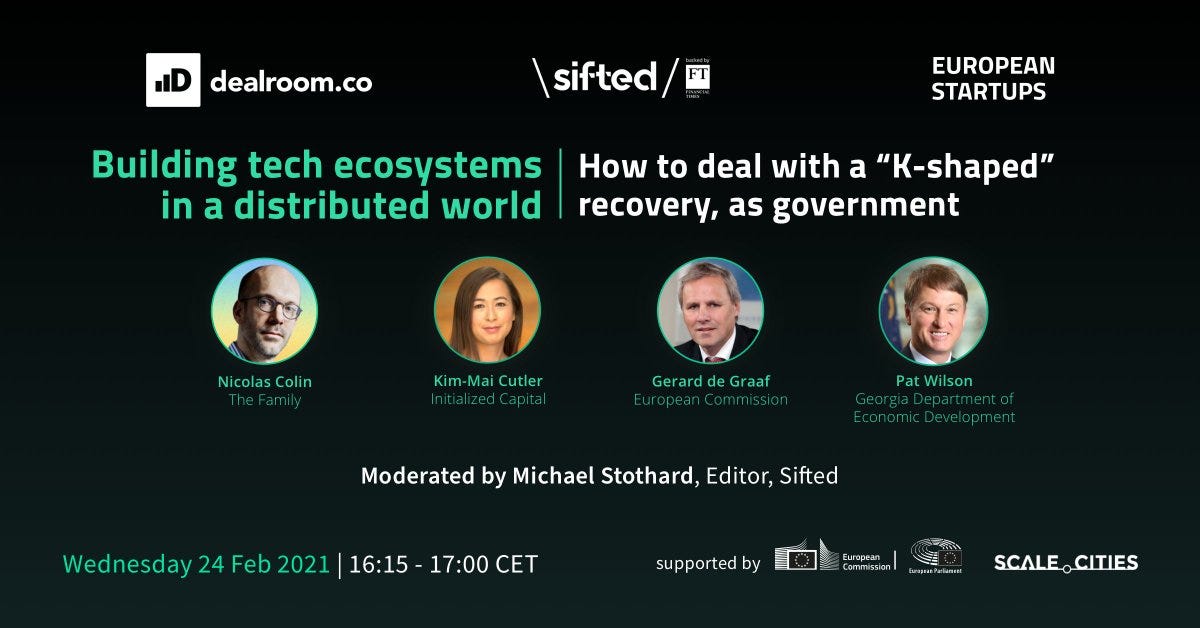




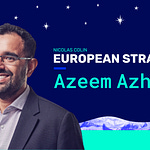
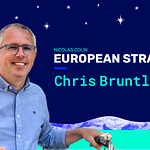
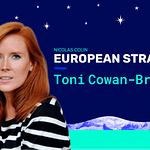

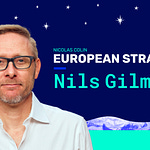

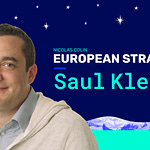
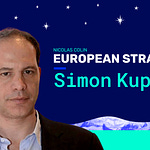
Silicon Valley & Europe w/ Toni Cowan-Brown. Capital Call. AI. International Expansion. Consumer Goods.